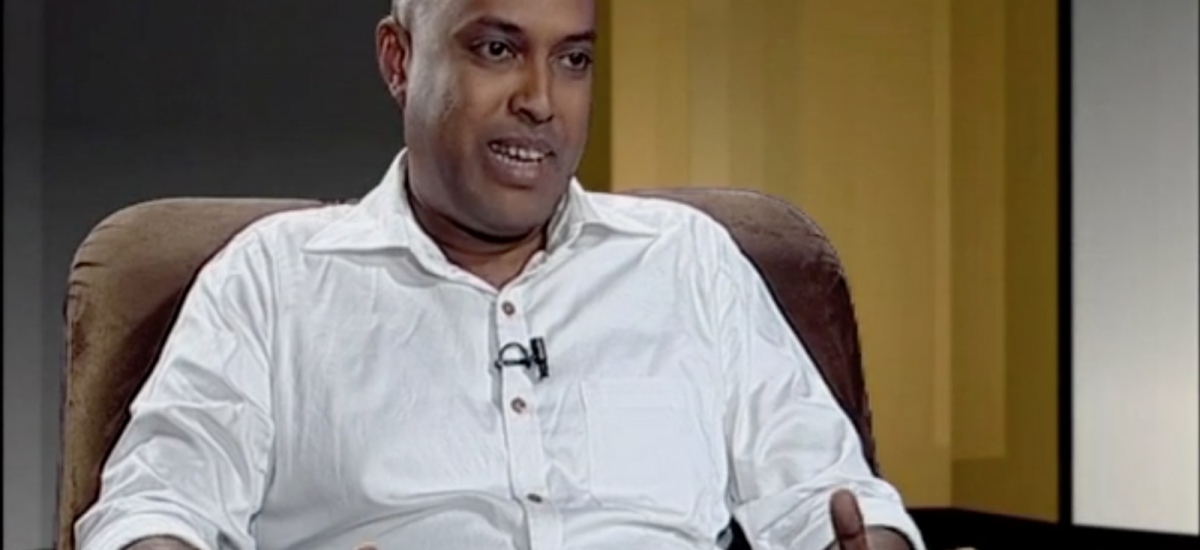Both the LinkedIn and Twitter profiles of Harsha Purasinghe note that he is Founder & CEO of Microimage, Microimage Mobile Media and WSO2 Mobile. He is in short a serial technology entrepreneur since the time he was in school, and the story of how his success came about is an interesting one.
We begin our conversation around how Microimage came about, which Harsha calls “the most successful school start up story in Sri Lanka”. When Microimage was created, Harsha was 19 and still doing his A/L’s in school. Harsha notes how from his neighbour’s computer (a Commodore 64) to getting his own, and then going to learn several programming languages, his skills and at the time, opportunities around Sinhala language rendering and input on the Windows operating platform, helped Microimage develop a niche and subsequently grow.
We then switch to the culture and spirit of innovation in Sri Lanka, focussing on technology innovation, tapping into Harsha’s life story but also more broadly into how things have changed since the time he started Microimage. Harsha’s on record saying that he was fine with just getting simple passes at the A/L exams, and is asked whether placing innovation above formal education is something he would go on to tell entrepreneurs today. Harsha talks about how even at the time, deciding to follow what he was really good at doing (which was computer programming) was an very frightening experience given the expectations around grades and public notions of success.
Harsha then talks about the financial side of (tech) entrepreneurship and how not having money should not be an insurmountable challenge for budding entrepreneur. However, he also stresses the need for business acumen to ensure sustainability and eventual profitability. We also talk about the context of tech innovation and the availability of angel investment or venture capital, and how the nature of competition also has changed the dynamics of innovation and entrepreneurship.
Harsha spends some time warning against the simplistic assumption that merely importing and replicating ideas that worked in the US was enough to bring fame and fortune to tech entrepreneurs in Sri Lanka.
We then move to talk about the significant impact and disruption to traditional models and markets that mobiles and mobile platforms have in just a few years succeeded in bringing about, and what this means to an entrepreneur like Harsha, who started his professional life developing for desktop PC operating systems. The conversation naturally progresses to m-government, and how mobiles in the palms of hands can revolution the way government operators and governance is architected at all levels of polity and society. In this respect, Harsha notes that Sri Lanka hasn’t yet “done enough to take mobile in the government space forward”.
Speaking as a mentor to emergent companies and younger entrepreneurs, Harsha then reflects on the current context for innovation, and in particular the challenges around mobile app development today, and what he sees as the future in this regard.
We shift the focus back to Microimage, and how the company under Harsha grew into one that handles enterprise resources, powers virtually all content management in radio and TV stations in Sri Lanka and elsewhere in the world and has also developed e-book content delivery platforms with a leading publisher in Sri Lanka. Harsha also talks about his key role in setting up WSO2 Mobile, and why he did it.
We end our conversation looking more broadly at how and if Sri Lanka, as a country, is getting better at branding (and creating) innovative products and services. Harsha lays out some ideas as to how the country can market itself better in this regard, and what this would entail. Harsha also flagged the gap between the policies around innovation at a national level, and their execution as one that impeded entrepreneurship.
Harsha ends the programme by giving a few details of what at the time of this programme’s first terrestrial broadcast in Sri Lanka is a service and app he had worked on that hadn’t publicly launched, around making the Sri Lankan music industry more accessible on mobile devices.

